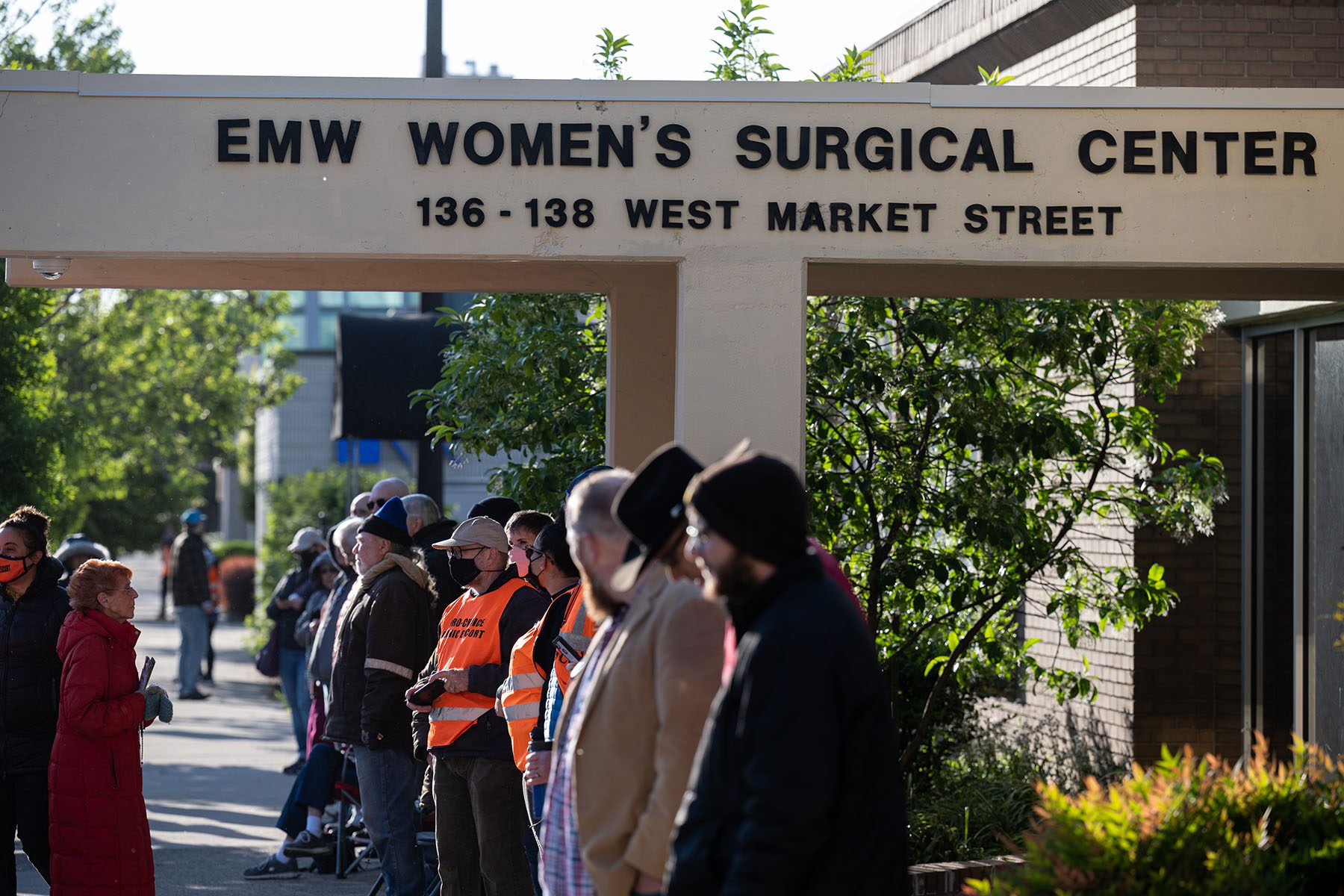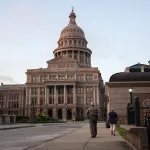A leaked draft of a Supreme Court decision overturning Roe v. Wade — the 1973 decision that guarantees the right to an abortion — has sent shockwaves through the nation’s reproductive health system. The decision, expected to be handed down this summer, would give states the right to restrict abortion access or deny it completely.
The draft opinion is not law. It has not been formally issued by the court, which has not issued a public statement on the leak. But — even without the force of law behind it — the leaked ruling is certain to embolden conservative-led states eager to restrict access to the procedure. And it will discourage patients from seeking abortions that, under current law, they are constitutionally entitled to, experts said.
“This is going to be such a mess,” said Elizabeth Nash, who tracks state policy for the Guttmacher Institute, which researches reproductive health policy. “We are all going to have to find ways to explain that abortion isn’t banned right now, because the decision hasn’t been issued — and when states start to implement abortion bans, explain where abortion is available.”
But, clinic administrators added, many patients are already confused about what is legal — especially those in states where new restrictions are being passed.
“There’s the chilling effect. That has a big impact, and that’s what we’ve been saying for months,” said Zachary Gingrich-Gaylord, a spokesperson for Trust Women, which operates clinics in Oklahoma and Kansas. “Our job is the same as it always is, which is to keep educating our communities and our patients and our allies about what reality is. And we are going to maintain our clinics as long as we can. And then we’ll figure out something else.”
-
What does this mean?
Planned Parenthood also emphasized that — for now — abortion remains legal.
“Understand that Planned Parenthood and our partners have been preparing for every possible outcome in this case and are built for the fight,” said Alexis McGill Johnson, CEO and president of Planned Parenthood Federation of America, in a statement. “Planned Parenthood health centers remain open, abortion is currently still legal, and we will continue to fight like hell to protect the right to access safe, legal abortion.”
Clinics have already been working to try to publicize information about what is currently legal — as well as about the impending Dobbs decision. The court has been expected to issue its ruling in June or July, at the end of its term.
But the leaked ruling will only fuel states passing abortion restrictions, experts said.
“It will only embolden those lawmakers in states who are looking to ban abortion, and anticipating a ruling like this from the court. And they’ve already been anticipating a ruling like this,” said Alina Salganicoff, senior vice president at the nonpartisan Kaiser Family Foundation, and its director of women’s health policy. “If you look at Texas and Kentucky and Oklahoma — you look at any of the states. They have been anticipating this ruling.”
The document, authored by Justice Samuel Alito, was reported on Monday night by Politico. It comes in response to a case known as Dobbs v. Jackson Women’s Health Organization, which concerns a Mississippi law banning abortion at 15 weeks. In unequivocal language, the draft opinion overturns both Roe and a subsequent case known as Planned Parenthood v. Casey, which upheld the central tenet of Roe but allowed states to restrict access as long as they did not place “an undue burden” on people seeking abortions. Such a leak is without precedent.
Already, 13 states have passed “trigger laws” that would ban abortions if Roe is overturned. Five more states have abortion bans on the books that predate 1973 — laws that have not been enforced in decades — that could go back into effect. And in at least two states, Arizona and Michigan, the governor has expressed resistance toward enforcing a total ban. (Michigan’s governor has challenged her state’s ban in court.)
But since December, when a majority of the court’s justices indicated openness to overturning Roe at oral arguments for the Dobbs decision, state lawmakers have been working full tilt since to amp up their abortion restrictions. Many directly cited the likelihood that Roe would soon be overturned.
Texas passed a law last year that leveraged civil lawsuits to functionally ban abortions after six weeks of pregnancy, a clear violation of the Roe standard, and early enough that many people do not realize they are pregnant.
Ohio’s state legislature is currently working to pass a “trigger law.” Florida and Arizona have both passed new 15-week abortion bans. Kentucky passed a law imposing massive new restrictions on clinics, with the effect of temporarily shutting down the state’s two abortion providers. Oklahoma has passed one law criminalizing all abortions and is on the verge of passing two more that would use Texas’ civil litigation strategy. One would ban abortion at six weeks, and another would ban the procedure almost entirely.
Though it is unclear how this leaked opinion will impact the Supreme Court’s final decision, abortion providers are continuing to operate with Roe v. Wade currently intact.
"We will continue to affirm that the ability of patients to access safe, legal abortion is critical for their health and well-being,” a statement from the American College of Obstetricians and Gynecologists read. “We are deeply concerned by the current reports and will continue our ongoing work to prepare for a new dynamic when it comes to needed abortion care."








